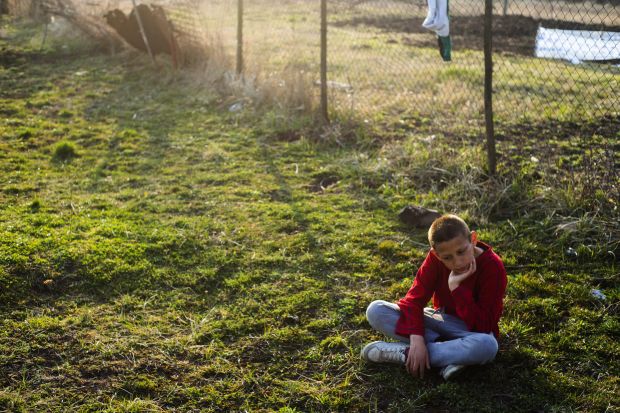VATICAN CITY (CNS) — Focusing on poverty and sacrificing for the poor are the heart of the Gospel, not signs of communism, Pope Francis said at his morning Mass.
Furthermore, if Christians don’t dig deep and generously open up their wallets, they do not have “genuine faith,” the pope said June 16 during the Mass in the chapel of the Domus Sanctae Marthae.
He said people often hear, “Oh, this priest speaks about poverty too much, this bishop talks about poverty, this Christian, this sister talk about poverty. Well, they’re a bit communist, aren’t they?”
[hotblock]
But “poverty is precisely at the heart of the Gospel. If we were to remove poverty from the Gospel, people would understand nothing about Jesus’ message,” he said, according to Vatican Radio.
Being fully Christian means being rich in spirit, faith, the Word, wisdom and zeal — things that Jesus has taught and offered all people, he said.
Make sure, however, that this huge amount of “wealth in the heart” also impacts the wallet, he said, because “when the faith doesn’t reach your pockets, it is not a genuine faith.”
Pope Francis said the “theology of poverty” is based on the fact that Jesus — in his divine richness — became poor; he lowered himself and sacrificed himself to save humanity.
The Beatitude, “Blessed are the poor in spirit,” means “letting oneself be enriched by the poverty of Christ and not wanting to be rich with those riches that are not from Christ,” he said.
Christian giving goes beyond plain charity, which is good, but isn’t the “Christian poverty” believers are called to embrace, he said. “Christian poverty is: I give to the poor what is mine, not the excess, but also what is necessary” for one’s own well-being.
Christians do this because they know that sacrificing in such a way enriches them, he said. “And why does the poor person enrich me? Because Jesus said that he himself is in the poor.”
When people strip themselves of the material, “Jesus works within” them and they are enriched; when people give to the poor, Jesus is also working in the poor, “in order to enrich me when I do this,” the pope said.
The clearest sign Jesus left of how giving enriches others, the pope said, is the gift of himself in the Eucharist. “He becomes ‘bread’ for us.”
That is why the “theology of poverty” is the heart of the Gospel and not “an ideology. It is precisely this mystery, the mystery of Christ who lowered himself, was humiliated, made himself poor in order to enrich us.”
PREVIOUS: Pope OKs synod members elected by Canada’s bishops, superiors general
NEXT: Christian hope does not let sting of death poison your life, pope says




Pope Francis says that the focusing on poverty and sacrificing for the poor are the heart of the Gospel and so the Church has its “theology of poverty”. This encompasses the Church’s social and economic justice programs, and numerous other “heartfelt” themes such as the elimination of poverty worldwide, opening the immigration borders, being good stewards of planet earth, abandoning the death penalty, personal giving and supporting Catholic charities etc. etc..
This is all well and good. But all of these things are outwardly directed and primarily focused on external worldly things that are geared towards nameless groups of people. Why? Isn’t the Church supposed to be about holiness and the Next World? About the spiritual health of individuals? About each and every person’s eternal soul?
So where is the other part of the Gospel message? The more important spiritual part? The heavenly part? The one that focuses on each one of us individually and with laser like focus? The one that will teach and guide us to a pathway to eternal life, but leaves the final choice up to us? The one that clearly and unambiguously with love and candor instructs and teaches us right from wrong, about evilness and sin and the everlasting consequences of sinfulness? That there is a heaven and there is a hell? Where are our Bishops boldly speaking from the pulpits?
The Pope speaks about the heart of the Gospel and the “theology of poverty” for today’s earthly realm but remains relatively silent on the soul of the Gospel and the “theology of salvation” that provides us a guide way to the heavenly realm. So too most of the Bishops. Why? What is more important? Today or eternity?
I believe Christ said the poor will always be with us. Most of what I see is the poor staying poor and the country giving them more benefits. What is being done to get the poor from being poor. It is not enough to feed the poor because we conditioned them to wait for the next handout. LBJ did a big disservice to the poor and every year the numbers increase. What is the church doing about the cause of making more poor every year. Feeding them is not the answer.